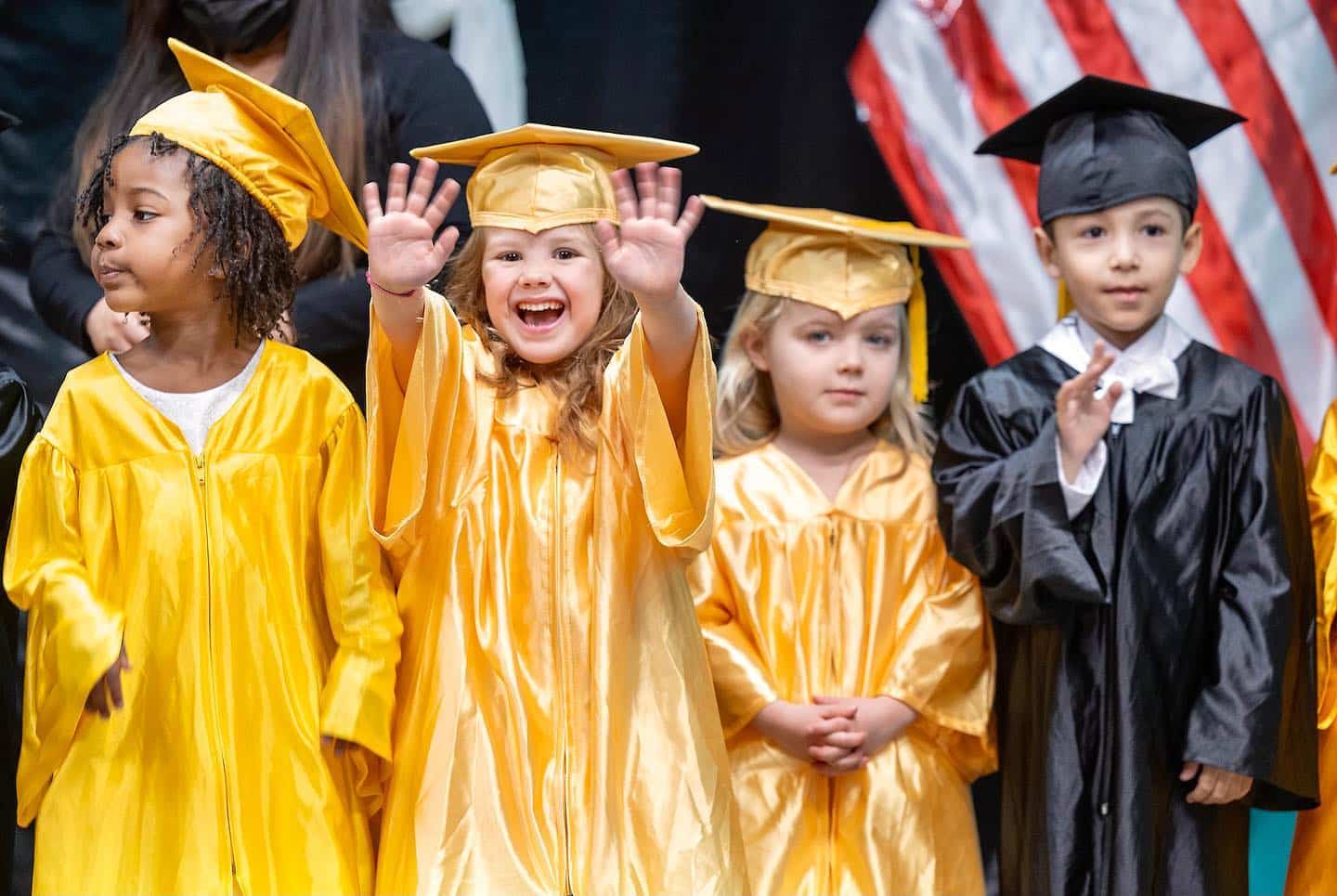Is your child approaching the age to start learning how to read, write, and socialize with other children? If you’re wondering when should kids start preschool, you’re not alone. Deciding when to start preschool is a significant milestone in your child’s development, helping them build essential social, emotional, and academic skills.
Choosing the right preschool involves many factors, including the location, curriculum, and your child’s readiness. It’s important to ensure that the preschool aligns with both your family’s needs and your child’s growth.
Let’s explore when is the best time to start preschool, what factors you should consider, and how to assess if your child is ready for this exciting next step.
What Is A Good Age to Start Preschool?
The typical age for children to start preschool is between 3 and 4 years old. This stage is often ideal because, at this age, many children are reaching critical developmental milestones like improved gross motor skills, rapidly advancing language abilities, and a growing interest in imaginative play. These skills form a strong foundation for preschool learning.
Deciding when should kids start preschool depends on several factors, including your child’s individual needs, family circumstances, and the preschool programs available in your area. Some children may begin preschool as early as 30 months, while others might wait until they’re closer to 5 years old. Every child develops at their own pace, so what works for one may not be the best fit for another.
Although many parents choose to enroll their children around age 3, there’s no one-size-fits-all answer to when should kids start preschool. It all comes down to whether your child shows signs of being ready for the experience, including factors like social readiness, communication skills, and their ability to follow simple routines. Ultimately, it’s about finding the right time based on your child’s unique development and your family’s needs.
When Is The Best Time To Start Preschool: Factors To Consider
Besides age, parents should consider their children’s current levels of emotional, physical, and cognitive development. Here are a few key considerations to keep in mind:
Socioemotional Skills
Children’s socioemotional development can differ greatly from one child to the next. While some children are naturally more comfortable in new environments and around unfamiliar people, others may feel shy, anxious, or overwhelmed. This is completely normal, and it’s important to recognize these differences when considering preschool enrollment.
Before deciding to enroll your child in preschool, take time to assess their social and emotional readiness. Since preschool involves daily interactions with peers, teachers, and other individuals outside the family, it’s essential that your child feels somewhat comfortable in group settings and is open to engaging with others. The ability to share, express feelings, and follow simple directions are key indicators of socioemotional maturity that can help your child succeed in a preschool environment.
However, if your child is still developing these skills, that’s okay! There are ways you can help prepare them for this next step. Teaching basic socioemotional skills, like taking turns, expressing emotions with words, and practicing self-control, can go a long way in helping your child adjust to the preschool experience. You can also gradually introduce them to new social situations, such as playdates or small group activities, to help them become more comfortable interacting with others.
Physical Skills
In most preschool programs, there are activities that involve physical activity, such as running, dancing, and playing. If your child has physical disabilities or concerns, it’s best to consult with your pediatrician on how to accommodate your child’s needs in the preschool environment. Your child should also be able to take care of themselves, especially tasks such as eating and using the bathroom. A certain level of independence is needed for a child to be in preschool.
Cognitive Skills
Since preschool is an academic setting, young students must already have basic cognitive skills to learn new information about topics such as math, science, reading, and writing. Preschool involves structured activities, group learning, and worksheets, so it’s important to assess your child’s cognitive development, especially if they have concerns about following instructions or paying attention.
Signs That Your Child Is Ready for School
Still unsure when to start preschool? Monitor your child’s development and take note of the following signs that your child may be ready for preschool.
Your Child Wants to Play with Other Children
Your child being friendly towards people outside of your family is the ideal personality for preschoolers. Observe how your child interacts with other children their age – do they greet them? Do they try to talk to them? Do they initiate play? A child who is confident in making new friends will fit in just right in a preschool.
Your Child Can Follow Simple Instructions
Following simple instructions is a crucial skill in preschool because of the different activities, worksheets, and games facilitated in a classroom. If your child is able to follow instructions at home, then they won’t have a hard time in preschool.
Your Child is Curious and Eager to Learn
A natural interest in exploring new topics, asking questions, and engaging with learning materials is a good indicator that your child is ready to go to preschool. At home, give them books and puzzles and see how they interact with them. If your child shows curiosity and eagerness to learn, then it’s the perfect time to look for a preschool for them.
Preschool-Ready With Rayito De Sol!
There is no universal answer to what is a good age to start preschool, as it ultimately comes down to the child’s readiness and needs. That’s why it’s important to observe your child, consult with educators, and research potential preschools for your child to ensure the positive growth of their personal development.
Ready to enroll your child in a preschool? Rayito de Sol is committed to ensuring your child gets the best learning experience possible through its nationally accredited, 100% Spanish Immersion Program. Learn more about its early childhood program here.











